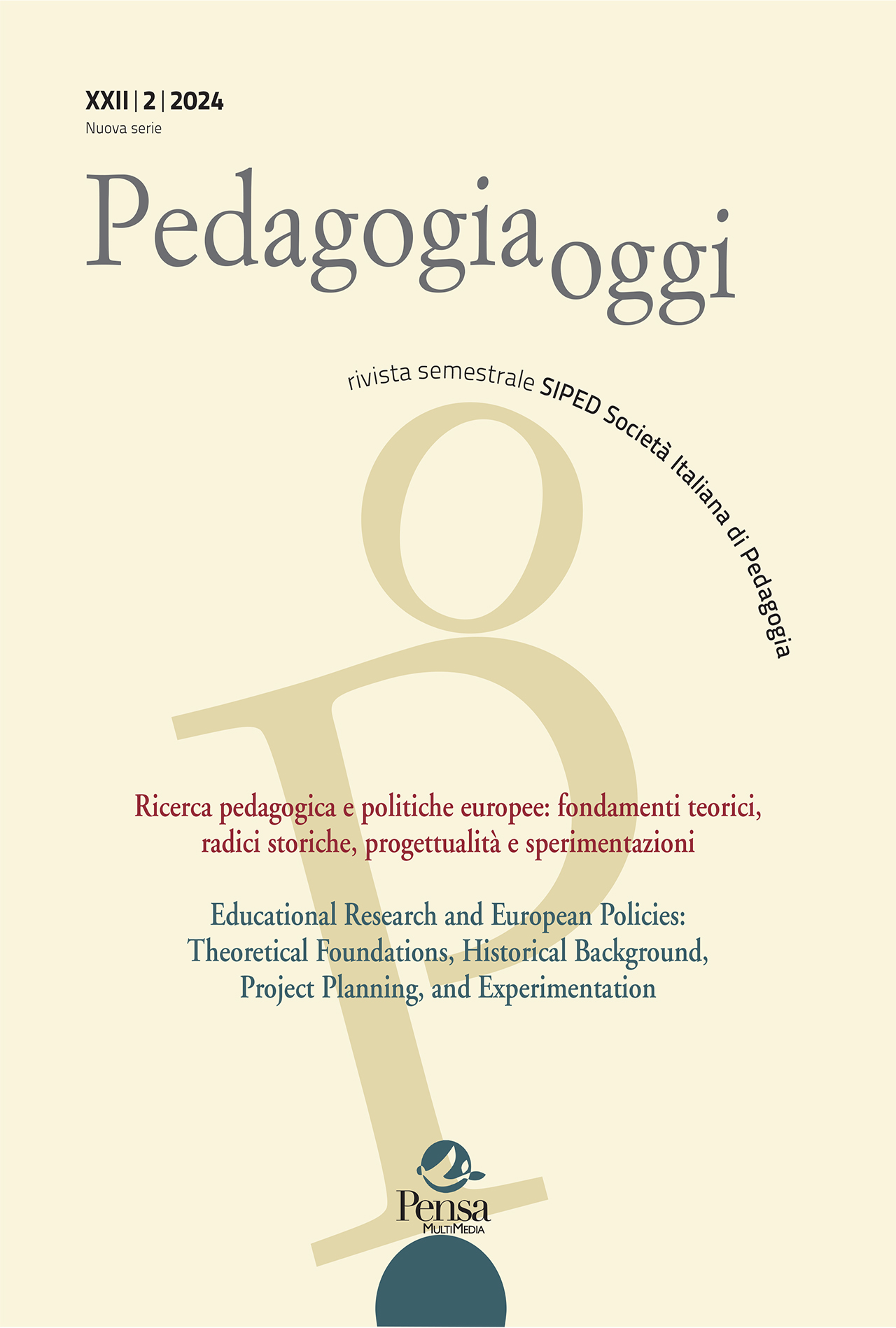Constructing “practice-based evidence” to support the transformation of educational action: perspectives for research
DOI:
https://doi.org/10.7346/PO-022024-12Keywords:
educational research; quality of learning; quality of teaching; research approaches; structures of action teachingAbstract
Numerous surveys sponsored by European institutions make it possible to analyse student performance and highlight the gap that often exists between political aspirations and the reality of didactic-pedagogical processes. In relation to these problems, educational research develops innovation hypotheses according to points of view that favour different types of evidence. Evidence of effectiveness is sought by testing new intervention programmes in controlled situations; the evidence to be provided is believed to lie in the potential to respond to the problems that teachers encounter in their experience; evidence is sought of the transformative power of didactic innovation on teachers' actions to support student learning. This is ‘practise-based evidence’, which must relate to ‘structures of action' in a transparent and potentially replicable way. The article focusses on this path and takes a critical look at some of the contributions in order to discuss the tasks of research. Numerous surveys sponsored by European institutions make it possible to analyse student performance and highlight the gap that often exists between political aspirations and the reality of didactic-pedagogical processes. In relation to these problems, educational research develops innovation hypotheses according to points of view that favour different types of evidence. Evidence of effectiveness is sought by testing new intervention programmes in controlled situations; the evidence to be provided is believed to lie in the potential to respond to the problems that teachers encounter in their experience; in turn, evidence is sought of the transformative power of didactic innovation on teachers' actions to support student learning. This is ‘practise-based evidence’, which must relate to ‘structures of action' in a transparent and potentially replicable way. The article focuses on this avenue by critically examining a number of contributions in order to discuss the tasks of research.
Downloads
Published
Issue
Section
License
Copyright (c) 2025 Daniela Maccario

This work is licensed under a Creative Commons Attribution 4.0 International License.




